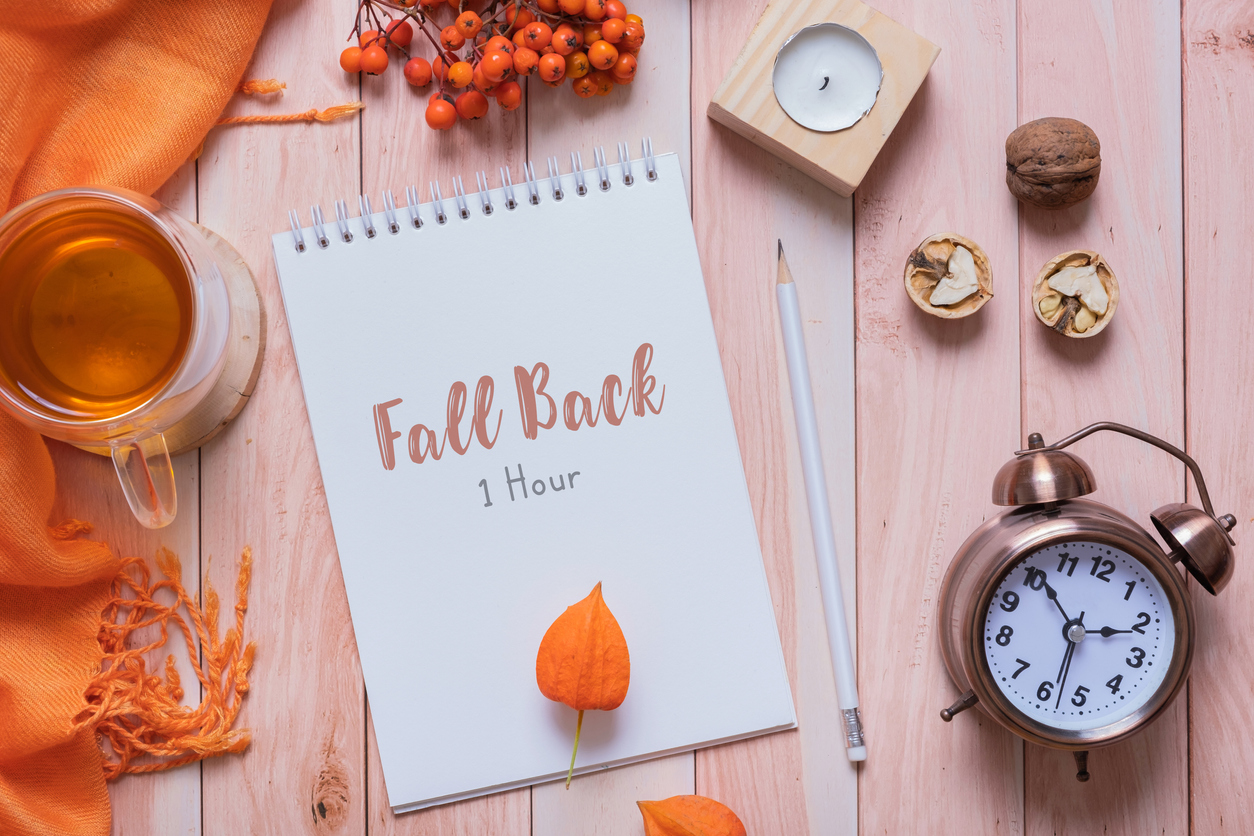Daylight Saving Time
When most people hear the term “daylight saving time,” they cringe a little. Time change is notorious for negatively affecting sleep schedules and can be difficult to adjust to. Luckily, on November 6 at 2:00am local time, daylight saving time officially ends. That means that time will turn back one hour! Neurologist and sleep expert Tina Waters, MD, states that you do not need to adjust your schedule for this time change. Instead, you can keep your schedule the same and reap the benefits of that extra hour of sleep.
Maximize the Benefits
According to the U.S. News & World Report Sleep Quality Survey 2022, roughly one-third of Americans are not currently getting quality sleep. Of the 2,000+ American adults that were surveyed, nearly 20% of people said they rarely or never wake up well rested and 16% of people say they only feel well rested a few times a month. So, this time change is actually a great opportunity to improve your sleep. Listed below are tips on how you can get ready to “fall back” by focusing on healthy habits that promote quality sleep:
- Nutrition: Did you know that your food choices can affect your sleep? Eating a balanced diet full of vitamins and minerals will help promote restful sleep. It is recommended to limit sugary drinks and processed foods, to stick to water and/or herbal tea after noon each day, and to eat dinner earlier if possible.
- Environment: Set up your bedroom to promote restful sleep. A cool, dark and comfortable space that is free of distractions and clutter is ideal.
- Evening Routine: Create an evening routine that is relaxing and easy to follow. Repeating the same routine every night prepares both your body and mind for sleep.
- Electronics: Turn off your cell-phone, tablets, laptops and televisions at least 30-60 minutes before bed. These devices cause mental stimulation that is hard to shut off and also generate blue light that may decrease melatonin production.
- Relaxation: During the 30-60 minutes of device free time, participate in whatever puts you in a state of calm. This could be activities such as listening to soft music, drawing, reading, meditation, light stretching, etc.
- Temperature: Raising your body’s core temperature can make it harder to fall asleep, so avoid heavy workouts within 4 hours of going to bed. If you take a shower before bed, take a warm, not hot, shower no later than an hour before bed.
- Naps: While it may be tempting, try to avoid long naps during the day as they can lead to a restless night. If you are in need of a pick-me-up, try a short 20-30 “power nap” in the early afternoon.
To learn more, click here!




